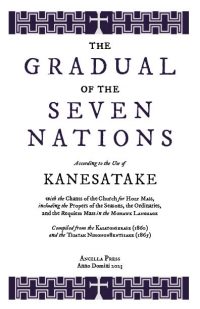About the Editor
Claudio Salvucci is the founder of Evolution Publishing, where he served as editor and compiler of the American Language Reprint series (1996-2007), the Annals of Colonial North America series (2002-2005), and the ALR Supplement series (2008-2013), specializing in historic Algonquian and Iroquoian vocabularies and texts. After discovering the Indian Masses and finding they were almost unknown in liturgical and Catholic circles, he devoted himself to studying them and promoting them via his book The Roman Rite in the Algonquian and Iroquoian Missions and via articles in Latin Mass Magazine, New Liturgical Movement, and Liturgical Arts Journal. He founded Ancilla Press in 2015 to publish devotional books and to revitalize American Catholicism through its own native traditions. In 2020 he was asked to be Communications Director for the North American Province of the Priestly Fraternity of St. Peter; there he continues to study the Roman liturgy while editing the Meménto newsletter, the Missive blog, and the yearly calendar and Ordo.
THE
GRADUAL
OF THE
SEVEN NATIONS
A liturgical project aiming to preserve the Indian Masses
of the Native American Missions
Background

Restoring the Tradition

The Gradual of the Seven Nations
The name Gradual (Graduale Romanum) is also used for the book that contains the music sung by the choir at Mass. The name comes from this most important chant, but the book contains the plain-song music for the Ordinary…and all the Propers for the year.
The inclusion of all the different uses together in one book will enable the Gradual of the Seven Nations to be used not only for a complete cycle of year-round Masses by historic missions such as Kahnawake and Odanak, but also for occasional Indian Masses on feasts, celebrations, and gatherings of Native American interest. This combination of local and universal should make it particularly adaptable and well suited to preserve these liturgies into posterity.

About the Project
Ancilla Press hopes to eventually publish the Gradual of the Seven Nations as a full-fledged liturgical book that befits its service in the Holy Sacrifice of the Mass. But at present we are still in the early stages of compilation.
Our first task is to collect and clean up all the relevant chants and then lay them out in a way that is accessible to modern choirs. Some amount of rearrangement of the originals will be necessary, and in a few cases where only manuscripts of the Masses exist, these will need to be typeset.
We have decided to progress through each of the various liturgies one at a time, and then retain these as chapters in the final Gradual.

How You Can Help
To raise money and gauge interest in the project, Ancilla Press will be making each different Indian Mass available in spiral-bound editions suitable for choir use.
First to be published is the Use of Kanesatake, which you can read more about in an article of mine for Liturgical Arts Journal. Though a quite archaic and rather simple liturgy, with only a handful of Introits and Mass settings, the Kanesatake Use can be used for a wide array of seasonal and common Masses.
We also could use your spiritual support, particularly prayers for the successful conclusion of the project and the restoration of the Indian Mass to North American Catholicism.

Our Patroness
This year of 2023 marks the 350th anniversary of the death of Catherine Gandeaktena, who is in many ways the patroness of this project. Before she died in the odor of sanctity on November 6th 1673, she had co-founded the mission of St. Francis Xavier in Kahnawake and forged a devout Catholic community out of converts from 20 different nations. Kahnawake would become the home and final resting place of St. Kateri Tekakwitha, and the capital of the Catholic confederacy known as the Seven Indian Nations of Canada. Its liturgical tradition was the most highly developed of all the missions, so it will have the honor of being the very first section in the Gradual of the Seven Nations.
-
←→
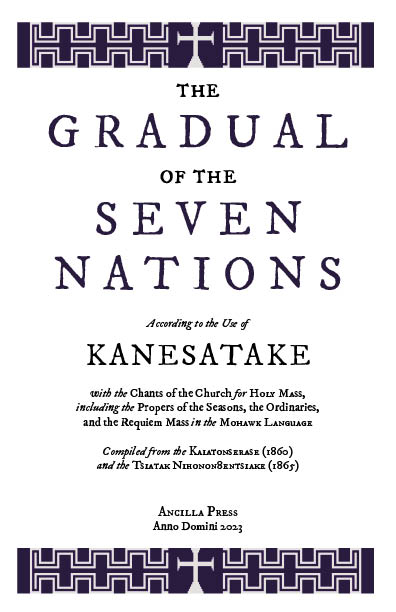
Gradual of the Seven Nations: Kanesatake
$25.00Featuring centuries-old Mass settings in the Mohawk language, as sung in the Indian mission of Lake of Two Mountains, Quebec (Kanesatake/Oka). This spiral-bound choir edition includes half-dozen Mass Propers for various seasons in the liturgical year, six settings of the Mass ordinaries, and the Requiem Mass.Maximum quantity exceededMinimum purchase amount of 0 is requiredGradual of the Seven Nations: Kanesatake
$25.00Featuring centuries-old Mass settings in the Mohawk language, as sung in the Indian mission of Lake of Two Mountains, Quebec (Kanesatake/Oka). This spiral-bound choir edition includes half-dozen Mass Propers for various seasons in the liturgical year, six settings of the Mass ordinaries, and the Requiem Mass.Gradual of the Seven Nations: Kanesatake
$25.00Successfully Added to your Shopping CartAdding to Cart...
-
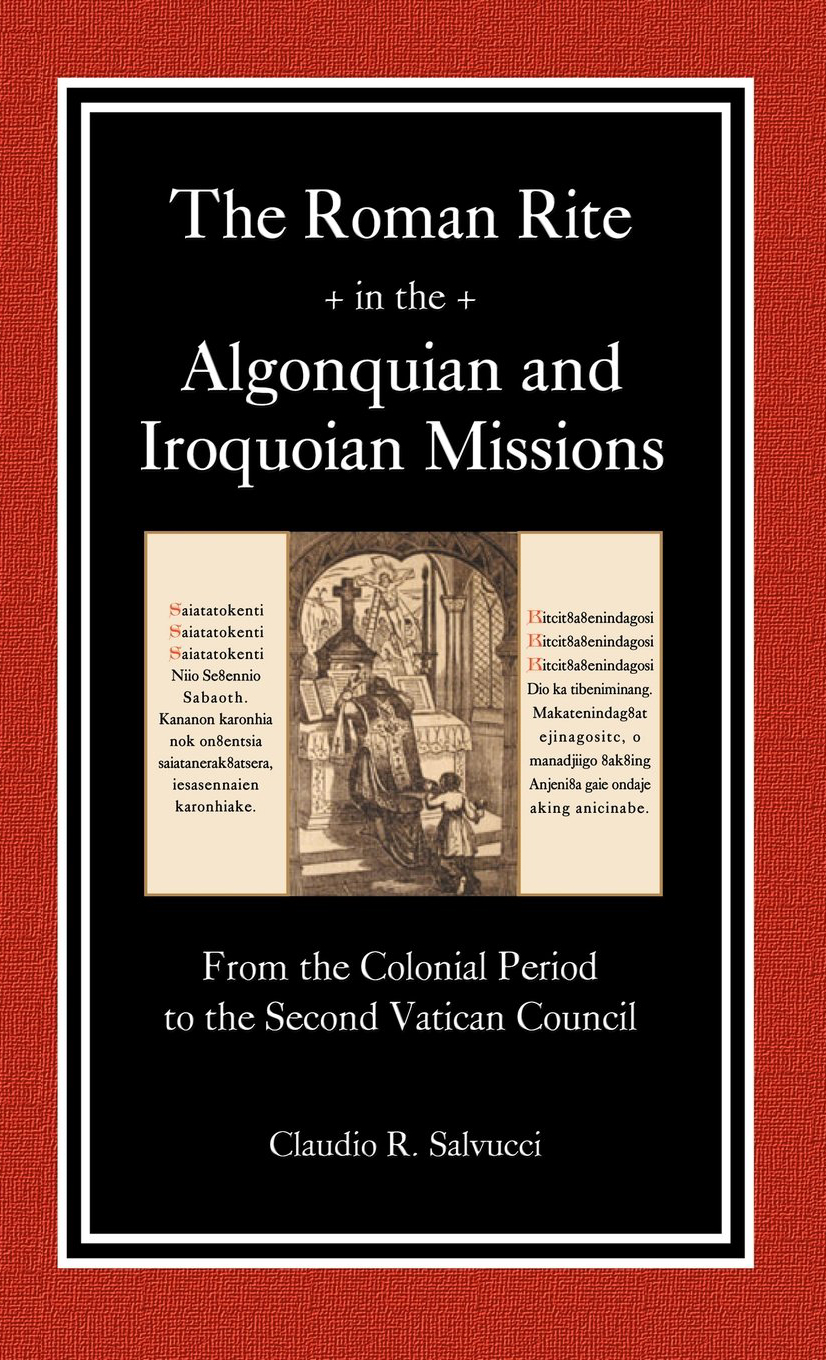
The Roman Rite in the Algonquian and Iroquoian Missions
$39.95This volume is the first ever book-length treatment of the distinctive American Indian Catholic liturgies of the Northeastern Woodlands. It compares and contrasts the Indian Masses of different missions with each other and with the official Roman Missal. It also contains chapters on the calendar and hagiography of the missions; formulas for Baptism, Matrimony, and other sacraments; the Divine Office; characteristic sacramentals and devotions; and religious life. The first book of its kind, and a must for scholars of Native American Catholicism.Maximum quantity exceededMinimum purchase amount of 0 is required1 Left in StockThe Roman Rite in the Algonquian and Iroquoian Missions
$39.95This volume is the first ever book-length treatment of the distinctive American Indian Catholic liturgies of the Northeastern Woodlands. It compares and contrasts the Indian Masses of different missions with each other and with the official Roman Missal. It also contains chapters on the calendar and hagiography of the missions; formulas for Baptism, Matrimony, and other sacraments; the Divine Office; characteristic sacramentals and devotions; and religious life. The first book of its kind, and a must for scholars of Native American Catholicism.The Roman Rite in the Algonquian and Iroquoian Missions
$39.95Successfully Added to your Shopping CartAdding to Cart...
-
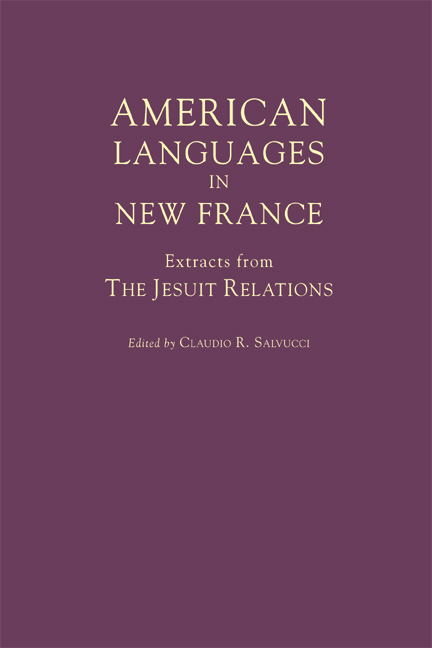
American Languages in New France
$75.00OUT OF STOCKSuccessfully Added to your Shopping CartAdding to Cart...
-
←→
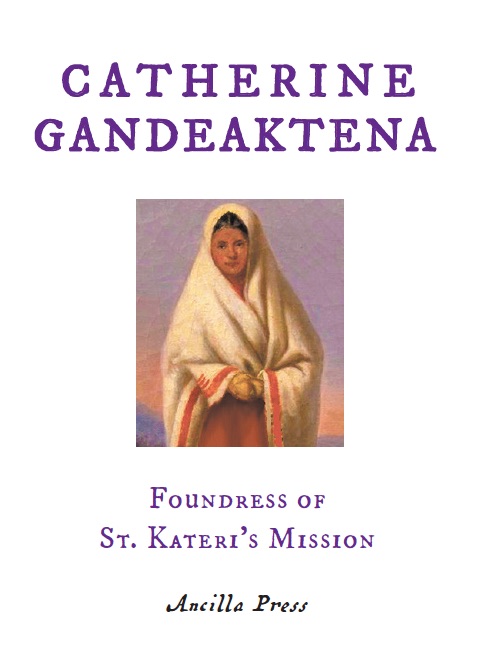
Catherine Gandeaktena: Foundress of St. Kateri's Mission
$5.95Catherine Gandeaktena died in 1673, held in such high regard that her priests believed she would immediately attain the bliss of heaven. Her wonderful story is scattered in the accounts of the Canadian Jesuits as well as the biographies of St. Kateri Tekakwitha. For the first time ever, they have been assembled here into a short readable biography of her life, with particular attention to the virtues that marked her passage from her childhood in the Erie and Oneida villages to her marriage, Baptism, and holy death.Maximum quantity exceededMinimum purchase amount of 0 is requiredCatherine Gandeaktena: Foundress of St. Kateri's Mission
$5.95Catherine Gandeaktena died in 1673, held in such high regard that her priests believed she would immediately attain the bliss of heaven. Her wonderful story is scattered in the accounts of the Canadian Jesuits as well as the biographies of St. Kateri Tekakwitha. For the first time ever, they have been assembled here into a short readable biography of her life, with particular attention to the virtues that marked her passage from her childhood in the Erie and Oneida villages to her marriage, Baptism, and holy death.Catherine Gandeaktena: Foundress of St. Kateri's Mission
$5.95Successfully Added to your Shopping CartAdding to Cart...
-

Kateri Tekakwitha - The Iroquois Saint
$12.95OUT OF STOCKSuccessfully Added to your Shopping CartAdding to Cart...


